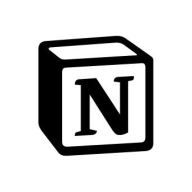

Wrike and Notion are competing in the project management and organization software category. Wrike appears to have the upper hand in comprehensive project management features, while Notion is stronger in data structuring and flexibility.
Features: Wrike offers dynamic Gantt charts, task assignment, and real-time updates, which are beneficial for complex tasks. It provides a highly customizable environment, integrating with Google Apps and offering robust collaboration tools. Notion's strengths are in its flexible framework for organizing tasks, customization, and integration capabilities, focusing on structuring and linking information effectively.
Room for Improvement: Wrike users have expressed the need for improved task management, user interface enhancements, and better integration functionalities. Additionally, there is a demand for more comprehensive tracking and dependency management features. Notion users highlight limitations in automation, external integrations, and the need for mobile application improvements. Enhancements in UI design and more collaborative features are also pointed out.
Ease of Deployment and Customer Service: Wrike provides deployment options across Private Cloud, Public Cloud, and On-premises, catering to various infrastructure needs. Its customer service is highly praised for responsiveness and resources. Notion primarily operates on the Public Cloud, which may restrict usage in certain environments. Though its customer service is well-rated, users note areas for potential improvement. Wrike scores slightly higher in user feedback for support.
Pricing and ROI: Wrike's subscription-based pricing is viewed as costly for large teams, but users report strong ROI with increased productivity and efficiency offsetting the cost. Notion offers more affordable pricing with a free basic plan and reasonable upgrades, making it accessible for smaller teams or personal use. While both solutions are commended for their ROI, Notion is noted for its affordability and broad applicability due to its flexible pricing.


Notion is an all-in-one workspace that enables teams to collaborate, organize, and manage their work effectively. Its primary use case is to streamline project management, knowledge sharing, and task tracking. With its versatile functionality, Notion allows users to create and customize databases, wikis, and documents, making it a powerful tool for organizing information.
The most valuable functionality of Notion lies in its flexibility and ease of use. Users can create and link various types of content, such as text, images, files, and even embed external resources. This enables teams to centralize their work and collaborate seamlessly, eliminating the need for multiple tools. Notion's drag-and-drop interface and intuitive editing features make it accessible to users of all technical backgrounds.
Notion helps organizations by fostering transparency, improving productivity, and enhancing knowledge management. By providing a centralized platform for collaboration, teams can easily access and contribute to shared projects, reducing communication gaps and ensuring everyone is on the same page.Wrike is an online collaboration and project management software bringing together centralized task management and social collaboration features into one real-time workspace. It connects tasks, discussions, and emails to your actual project plan. You get an up-to-date picture of the project and can keep your team aligned with your strategy without boring status meetings. Challenges Wrike helps solve:
Main benefits:
Why Wrike?
We monitor all Project Management Software reviews to prevent fraudulent reviews and keep review quality high. We do not post reviews by company employees or direct competitors. We validate each review for authenticity via cross-reference with LinkedIn, and personal follow-up with the reviewer when necessary.